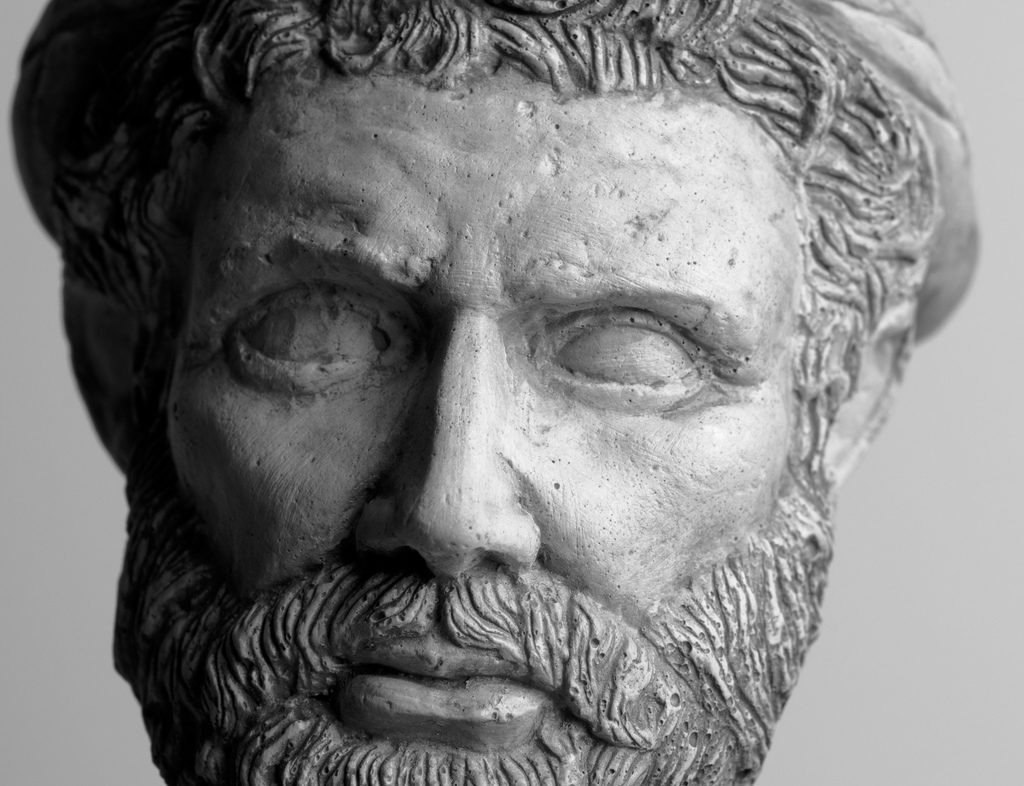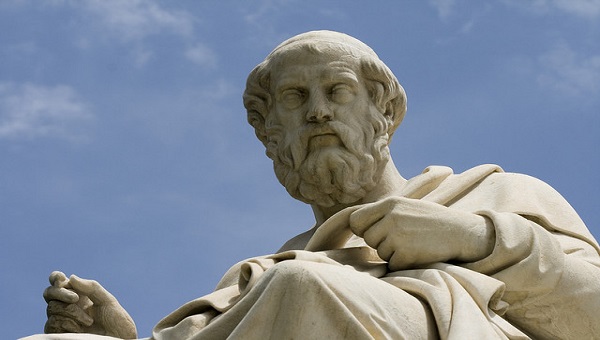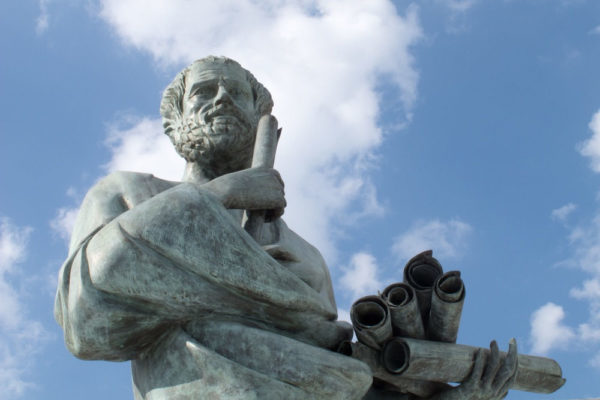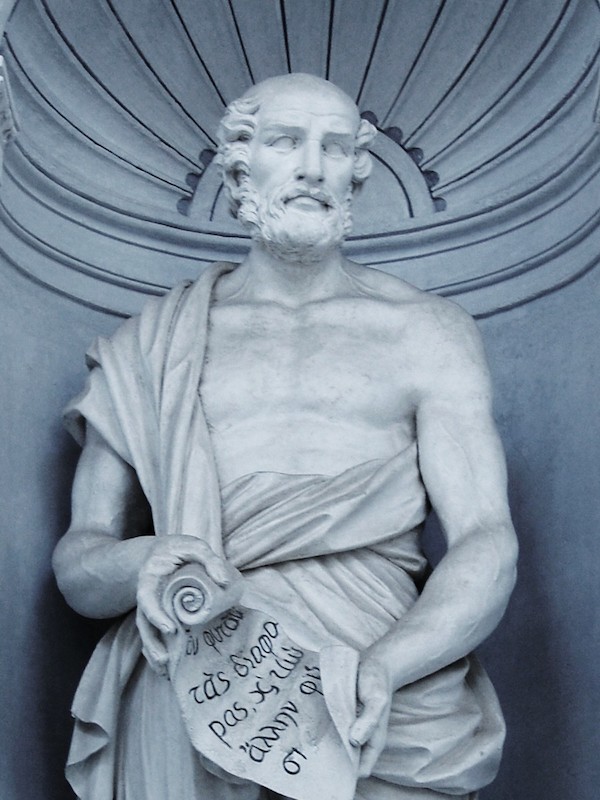Today, among the many reasons for being a vegetarian are wellness, environmental, and ethical issues; dislike of meat, non-violent beliefs, compassion for animals and economics. For the record, though I think it’s noble in many ways, I doubt I could ever achieve a vegetarian diet as most days I am wont to eat steak for breakfast…lunch and dinner.
Nevertheless, I find it interesting to think back to antiquity and see how far this tradition has come. The common person thinks of the ancient world and imagines famous battles, myths, kingdoms and empires, and so maybe overlooks subjects like the history of vegetarianism, which has become so popular today, along with many other animal-friendly diets (which benefit largely from these vegetarian proteins).
So, how were vegetarians perceived in classical times when they didn’t have these amazing vegetarian dinner suggestions?
Pythagoras: Wholesome, spiritual and sound-fated

Photo courtesy of flickr.com
Don’t worry, I’m not gonna talk about math. Pythagoras indeed was a mathematician, but, among many other things, he was also a philosopher. He taught that all animals, not just humans, had souls, which were imperishable and underwent rebirth after death.
As a human might become an animal at death, and an animal might turn human, Pythagoras suspected that killing and eating non-human animals damaged the integrity and purity of the soul and prevented union with a higher form of reality. Moreover, he was of the opinion that eating meat made humans wage war against one another.
Plato: Peaceful and modest

Photo courtesy of theimaginativeconservative.org
Plato’s teachings theorized only humans possessed immortal souls and that the universe was for human use. However, in The Republic, Plato’s character Socrates maintained that the ideal city was a vegetarian city, his argument being that meat was a luxury driving decadence and war. To Plato, eschewal of flesh is valuable considering the desire for peace and the avoidance of indulgent, excessive living.
Aristotle: Foolish

Photo courtesy of livescience.com
Plato’s student Aristotle agreed that the universe was for human use and that only human souls were immortal. In addition, he reasoned in favor of a hierarchy of beings where plants held the lowest rung of the ladder and humans the highest.
As for animals, Aristotle claimed there was no ethical duty to animals as they were irrational. Aristotle argued non-human animals could not conduct themselves without human assistance despite all evidence to the contrary.
Theophrastus: Sensible and virtuous

Photo courtesy of wikipedia.org
Aristotle’s student, Theophrastus, argued against his teacher’s views. He believed that killing animals for food was wasteful and unprincipled. Speculating as to the origin of flesh eating, he contended that war must have driven humans to eat meat as it destroyed the crops that they otherwise would have eaten. Different from his teacher, Theophrastus declared that animal sacrifices enraged the gods and turned humanity in the direction of atheism.
It’s interesting that (clearly) religious arguments have long been used as reason to pursue a vegetarian diet, and today in our modern, secular, areligious society, many chose to hold onto these principles.


